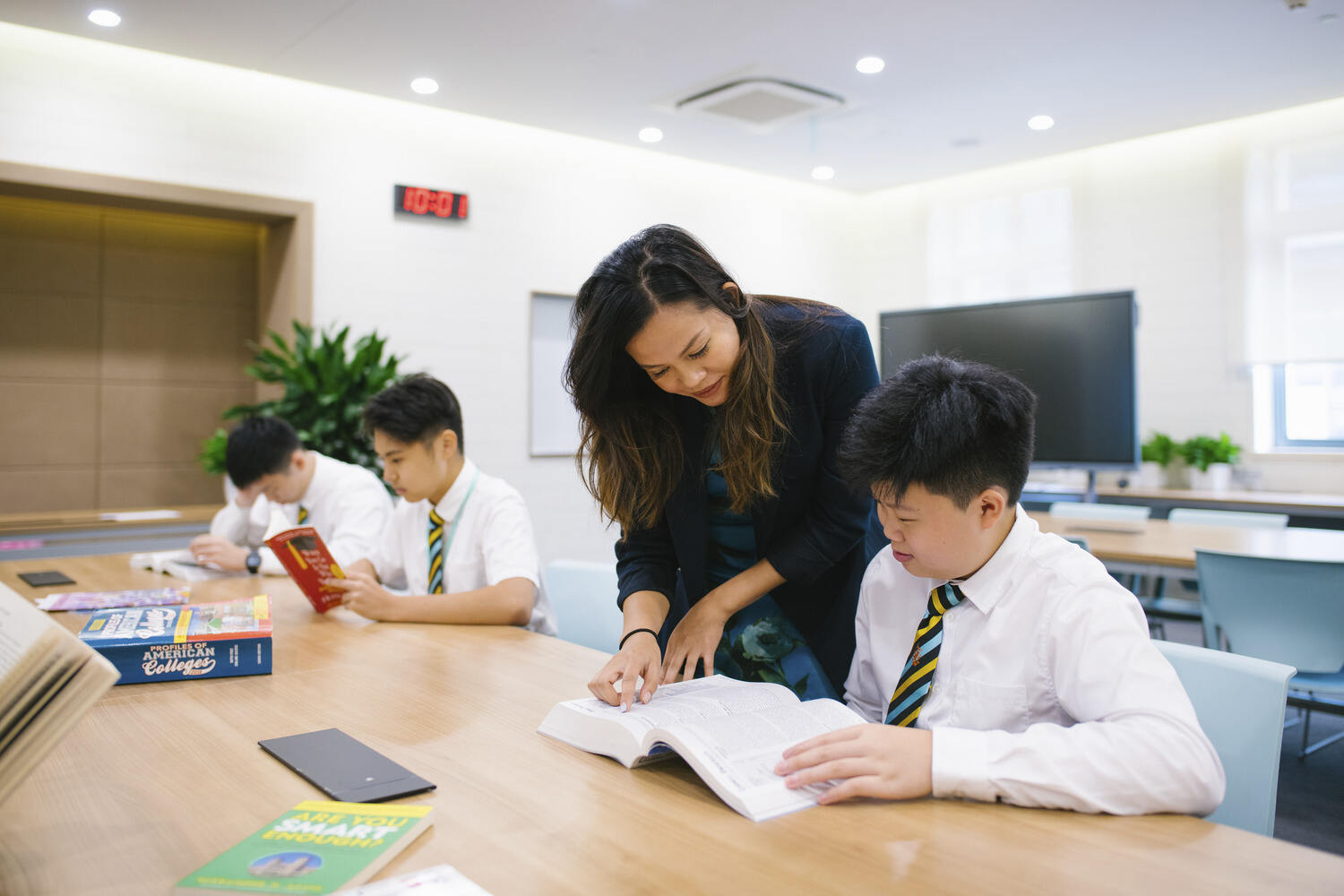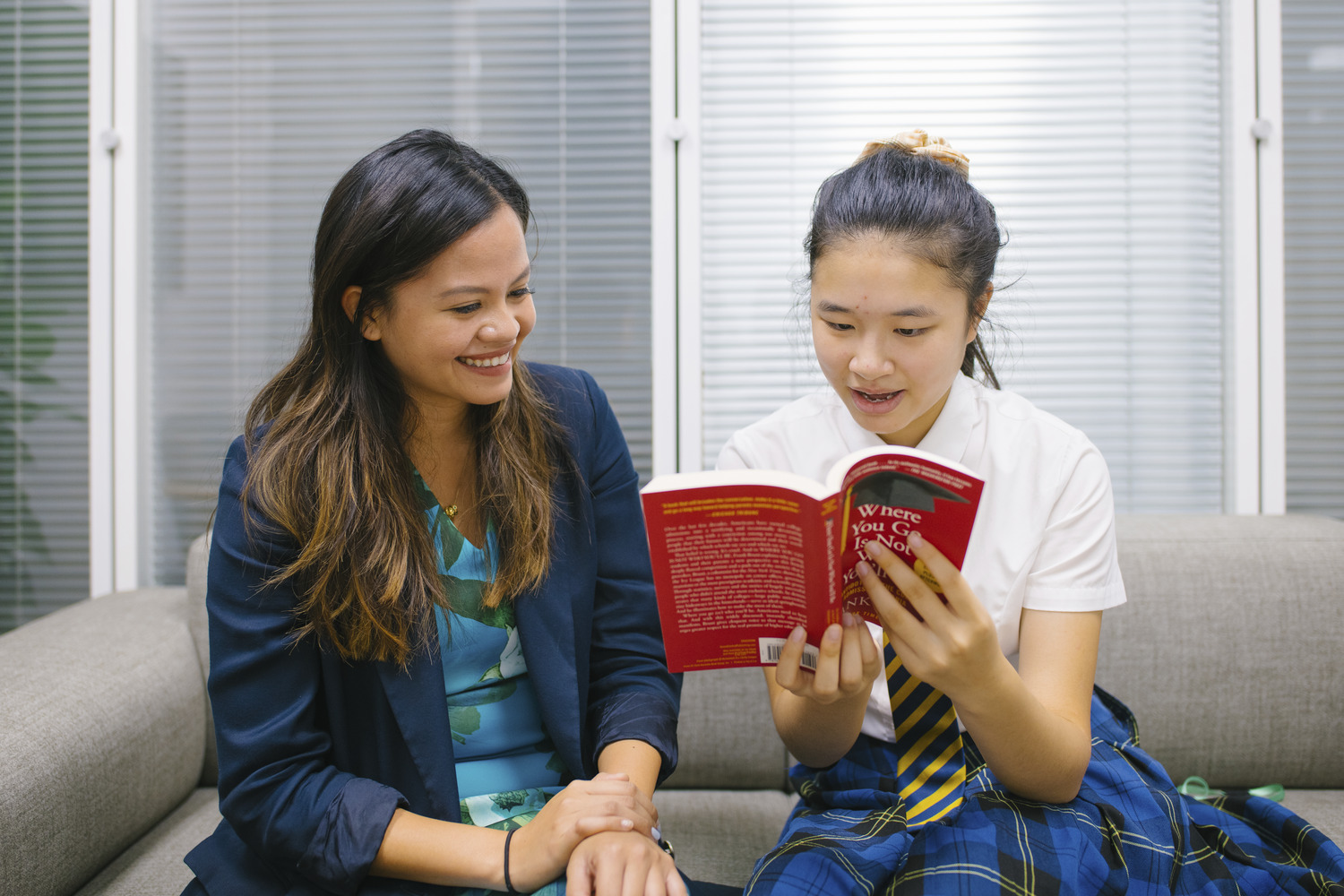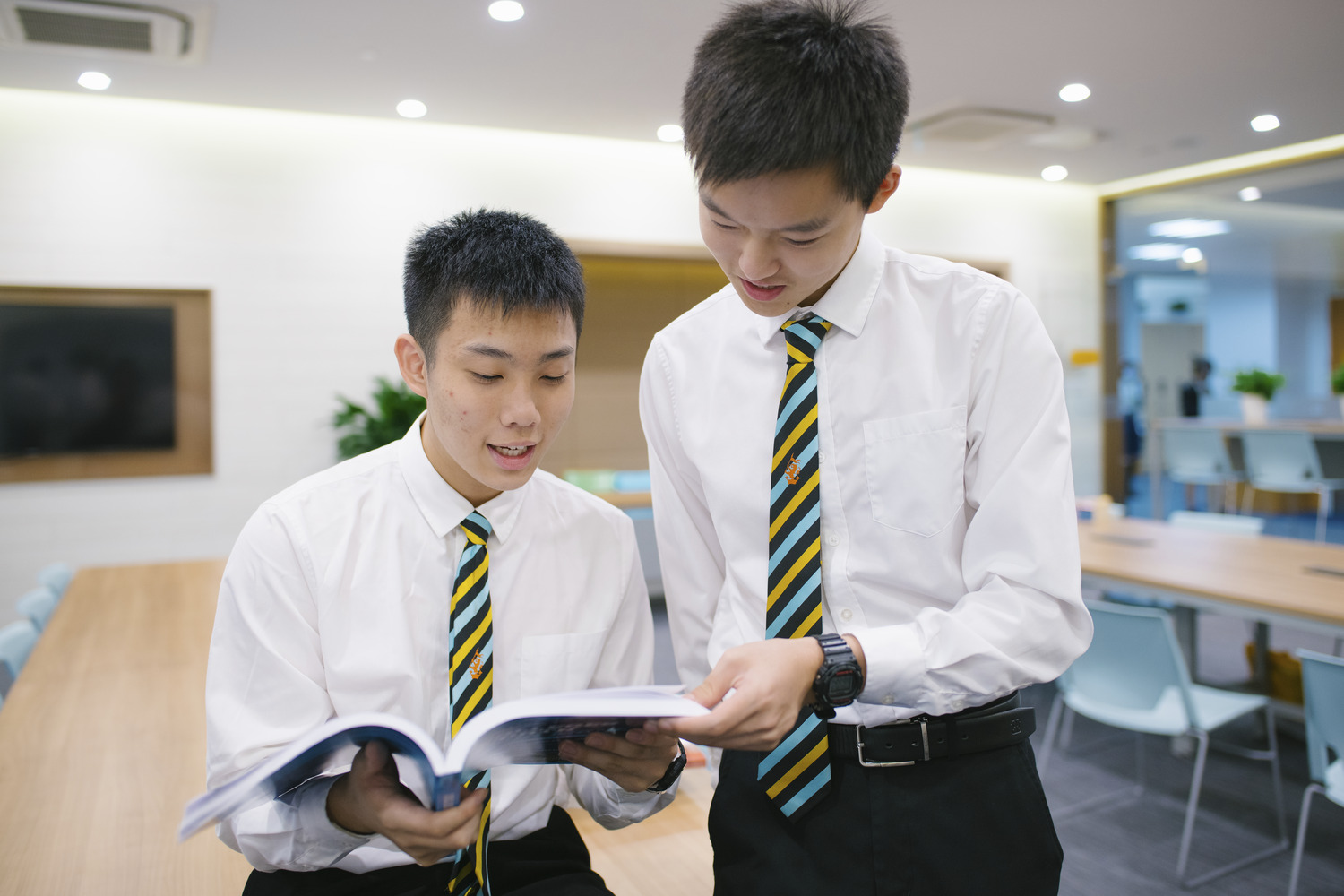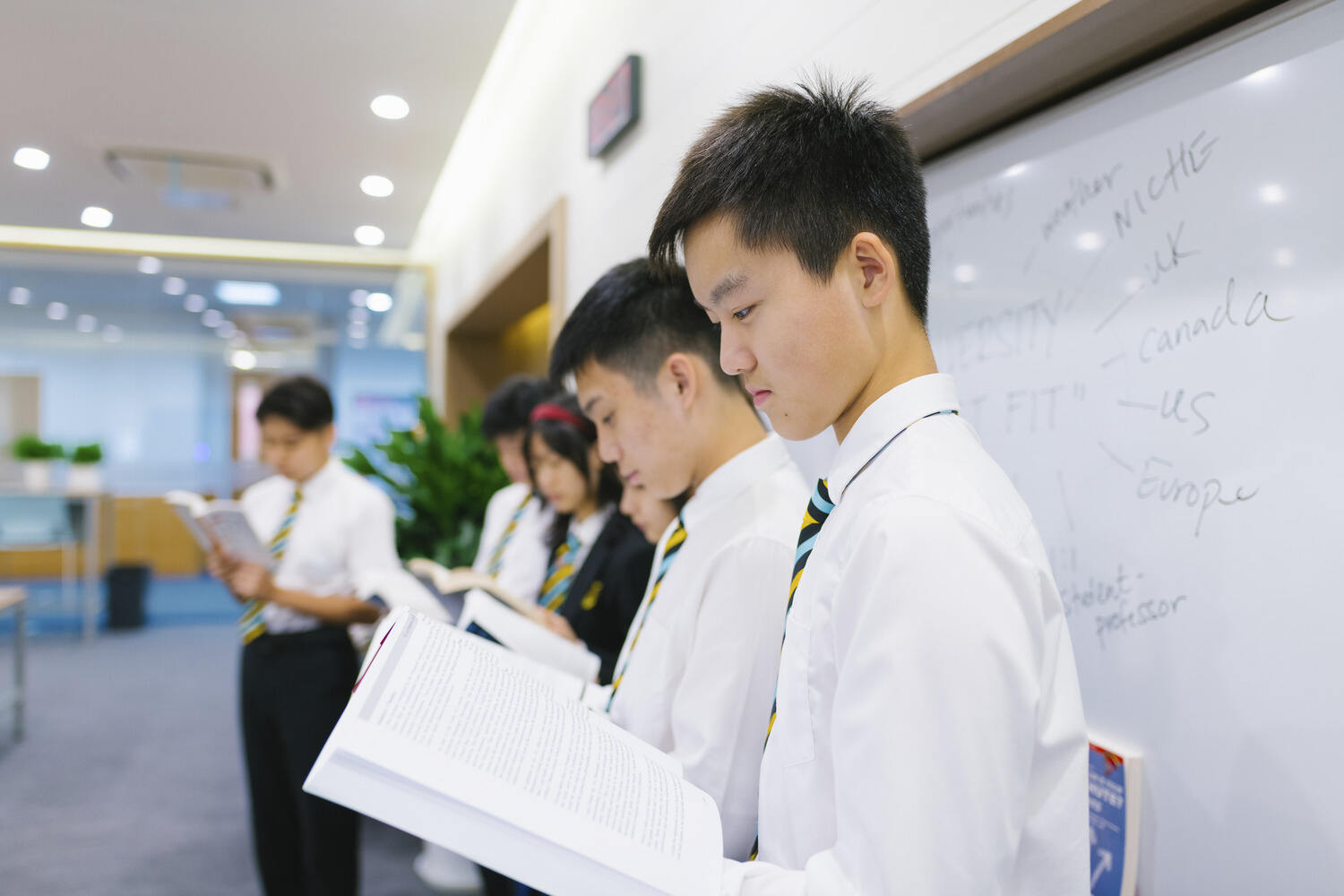
Karl Hockley
Secondary English Coordinator
As it is every pupil’s ambition to study abroad where English will become their primary language of study, English plays a crucial role in every pupil’s development at Huili School Shanghai.
It is because of this English extends well beyond the classroom, and it is why as a department, we are continually looking for possibilities to extend pupil opportunities, giving pupils different opportunities in which they can engage with English.

With this in mind, English in the secondary school focuses on First Language English from Grade 6 and aspires for pupils to continue this pathway through IGCSE and the IBDP programme.
In-classroom study
In Junior High, we ensure that pupils have multiple opportunities to develop their reading, writing, speaking, and listening skills. Throughout each grade, we make sure that pupils are exposed to a wide variety of literature.
Each grade studies at least three texts and the level of analysis required for each text increases year on year. Writing and speaking opportunities are often shaped around the text to give pupils opportunities to engage in the classroom through a variety of mediums.
Another positive that comes from studying a wide variety of texts, comes with the exposure to different cultural understandings of literature. Pupils must place the text within a time and place to better understand the rationale. This allows their teachers to explore the history and culture of a novel with them and branch out to more than just ‘reading and writing’.
Through these examples of reading that the pupils get to experience, pupils also get to engage with well-developed vocabularies, excellent use of syntax and consistent use of grammar. One of the views within the English department is for pupils to achieve the best possible outcomes they need exposure to the best possible works to inspire and help them develop.

We understand that our pupils are not first language users, and there is more reference to explicit grammar than we would normally see in a first language classroom, but the application of this is the crucial element that is focused on.
Outside of the novels studied, each year group has a poetry unit, as well as studying non-fiction units that align with the text types from IGCSE and IBDP. We must use a wide variety of text types to help pupils to apply their English language skills across other subjects within the school.
Everything we do within the classroom is with the end goal in mind. We are preparing pupils for the IBDP curriculum and what we hope will be the first language course. Both our assessment and our curriculum are written backwards. We start at the end of our pupils’ journey and work our way back to grade 6.
Beyond-classroom study
Over the past year, there have been many changes to the English department; this means we are constantly reflecting on our practice and developing new strategies to help support the pupils both inside and outside of the class. One of the introductions is our home learning policy. This was developed to help pupils better manage their homework load and engage with English more frequently.

Currently, as a department, we have three online platforms that we expect the pupils to engage regularly with, ReadTheory, IXL and Accelerated Reader. All three programmes have been carefully chosen to offer something different to the pupils and can be completed without too much screen time. These platforms also give pupils instant and detailed feedback which we teach pupils to use, to help themselves progress.
Crucially, we also have three offline expectations of the pupils: vocabulary development, reflections and, most importantly, additional reading. All English teachers will continually stress that without continuous reading outside of the classroom, progress will be slow.

A pupil can never read the wrong type of book as long as they are reading books from a variety of authors and that can push and challenge their thinking. They can also use these texts to help them build their vocabulary, but they are encouraged to use words that they can apply to the context of the class, as the application is key.
The reflection element is designed to help pupils to think about their learning. There is no fixed structure to this, and pupils can submit their reflection in any form they wish about any topic they have covered in the week: whether it was something raised in class, through their homework, in their further reading, or beyond.
All these areas, both online and offline, are also designed so that parents can help support their pupils if they feel they need it. It allows parents to talk to them about their reflections and what they are proud of this week; talk about why they have chosen their words for the week and how they can be applied; look at their progress on IXL or Read Theory and challenge them to reach new heights, or simply ask them about the book they are reading. Positive encouragement that helps create a language learning environment is crucial to every pupil’s development.
In English we do not simply ask pupils to learn the words we use, but learn how these words can be used to craft works of art.
CCA English programme
Finally, we hope to continue to grow our CCA English programme. Last year, we successfully introduce the World Scholars Cup to Huili and we had amazing success with pupils being ranked amongst the best in China.

We will continue to grow WSC and we hope that many more pupils want to take part and not only demonstrate their debate skills, but everything else that WSC has to offer.
I encourage pupils to reach out to me if they are interested, and even if they don’t have time in the busy CCA schedule for one of those on offer, we can arrange a learning programme for those interested to participate in the future.
WSC is not all we have to offer now. We entered our first NHSDLC competition as a school recently where we also were able to demonstrate how capable our pupils are.
The MUN team are continuing to look for opportunities to compete and are preparing diligently for future events – we are looking at working with Wellington International School to arrange some friendly competitions.
Newly started, with support from an enthusiastic pupil, is our NSDA club - we also hope to be sending pupils to represent Huili in the near future to compete.

With all these debate competitions taking centre stage, we are also looking at competitive writing competitions where we can enter some of our most talented writers. We will do this through the CCA programme again, but it will be something that we open up to other pupils to demonstrate their love and passion for writing.